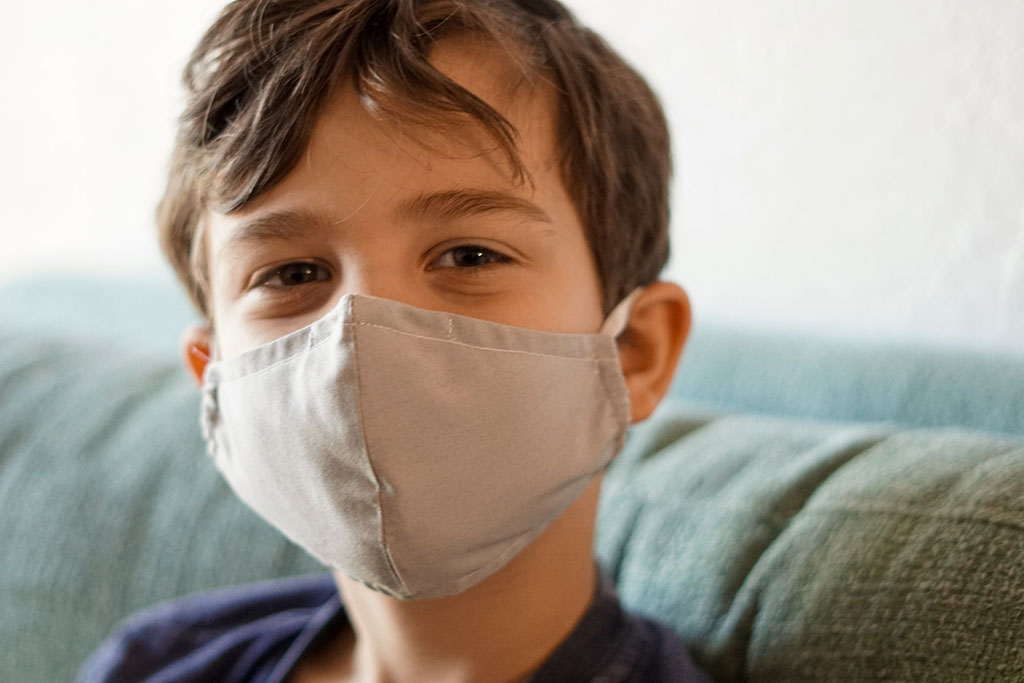Exposure to SARS-Co-V2, the virus that causes COVID-19, can put otherwise healthy children and adolescents at risk for Multisystem Inflammatory Syndrome in Children (MIS-C), a rare but possibly life-threatening pediatric condition that can cause severe inflammation in organs like the heart, brain, lungs, kidneys and gastrointestinal system.
Diagnosing and treating MIS-C — which has affected 2,600 children since May 2020 and is known to occur in children who have tested positive for SARS-Co-V2 or been exposed to someone with COVID-19 — is difficult because respiratory and gastrointestinal symptoms can be similar to severe COVID-19. Other features of MIS-C are very similar to Kawasaki disease, which causes inflammation in blood vessels.
Steven Horwitz, assistant professor of pediatrics at Rutgers Robert Wood Johnson Medical School, and an author of a recently published study in The Journal of the American Medical Association, looked at 1,116 people under 21 hospitalized from March through October 2020 with symptoms that could have been caused by any of these disorders and compared their clinical and laboratory results to determine how to more accurately diagnose MIS-C.
What is MIS-C and Why is it Difficult to Diagnose?
MIS-C is a new phenomenon in pediatrics. It occurs in association with SARS-CoV-2 infection, but the symptoms can be several weeks delayed in children who have COVID-19, the disease resulting from the virus, but who are asymptomatic. Complicating the diagnosis, MIS-C symptoms also are similar to those of Kawasaki disease, the leading cause of acquired heart disease in children.
Although the symptoms are similar, the potential complications, treatments and outcomes can be different. If we can distinguish these conditions better, it will improve treatment and follow-up care.
How is MIS-C Similar To and Different From Severe COVID-19 and Kawasaki Disease?
In general, children with MIS-C tend to get sicker than those with acute COVID-19 since more organs are involved. While children with acute COVID-19 can have respiratory and gastrointestinal symptoms directly related to the virus, MIS-C seems to be an inflammatory response to the infection that occurs several weeks later, and that can resemble COVID-19. In our study, 80 percent of the children with MIS-C and COVID-19 each had severe respiratory symptoms, but more children with MIS-C had multiple organ involvement including cardiac problems and mucus membrane conditions, such as rashes or redness in the eyes resulting in a similar presentation to patients with Kawasaki disease.
Compared with COVID-19 and Kawasaki disease, MIS-C is more likely to affect children who are Hispanic/Latino or Black; more likely to affect children who have no underlying conditions; and more likely to affect those between ages 6 and 12. It is more likely to cause gastrointestinal symptoms than Kawasaki disease.
Both Kawasaki disease and MIS-C affect boys more, but Kawasaki disease affects primarily those of East Asian descent and appears in younger children, around ages 2 and 3.
How Will This Study Inform Treatment?
What we learned will help refine how MIS-C is diagnosed and treated. For example, while children with COVID-19 or MIS-C could benefit from anti-inflammatory treatments like steroids, children with MIS-C could further benefit from other treatment options such as intravenous immune globulin. These patients should also follow up with a cardiologist to check for changes in heart function, cardiac arrhythmia or coronary artery disease.
What Should Parents Know?
I have children, so I understand how nervous parents are about this new syndrome. If your child develops a multitude of symptoms such as persistent fevers, rash or seem unusually tired, have your child assessed by a medical professional to rule out MIS-C. While MIS-C is a serious condition, most children including those with severe cardiac symptoms usually recover within 30 days.
Characteristics and Outcomes of US Children and Adolescents With Multisystem Inflammatory Syndrome in Children (MIS-C) Compared With Severe Acute COVID-19. JAMA, 24 February 2021.



